Maine’s first mass shooting shattered the town of Lewiston. This is how locals are untangling grief and relief
Lewiston entered the weekend in stunned grief, emerging from the shelter-in-place order to plan memorials and fundraisers while praying for the dead and the survivors still hospitalised – as the community started to heal from physical and emotional scars. Andrea Blanco and Sheila Flynn report from Maine

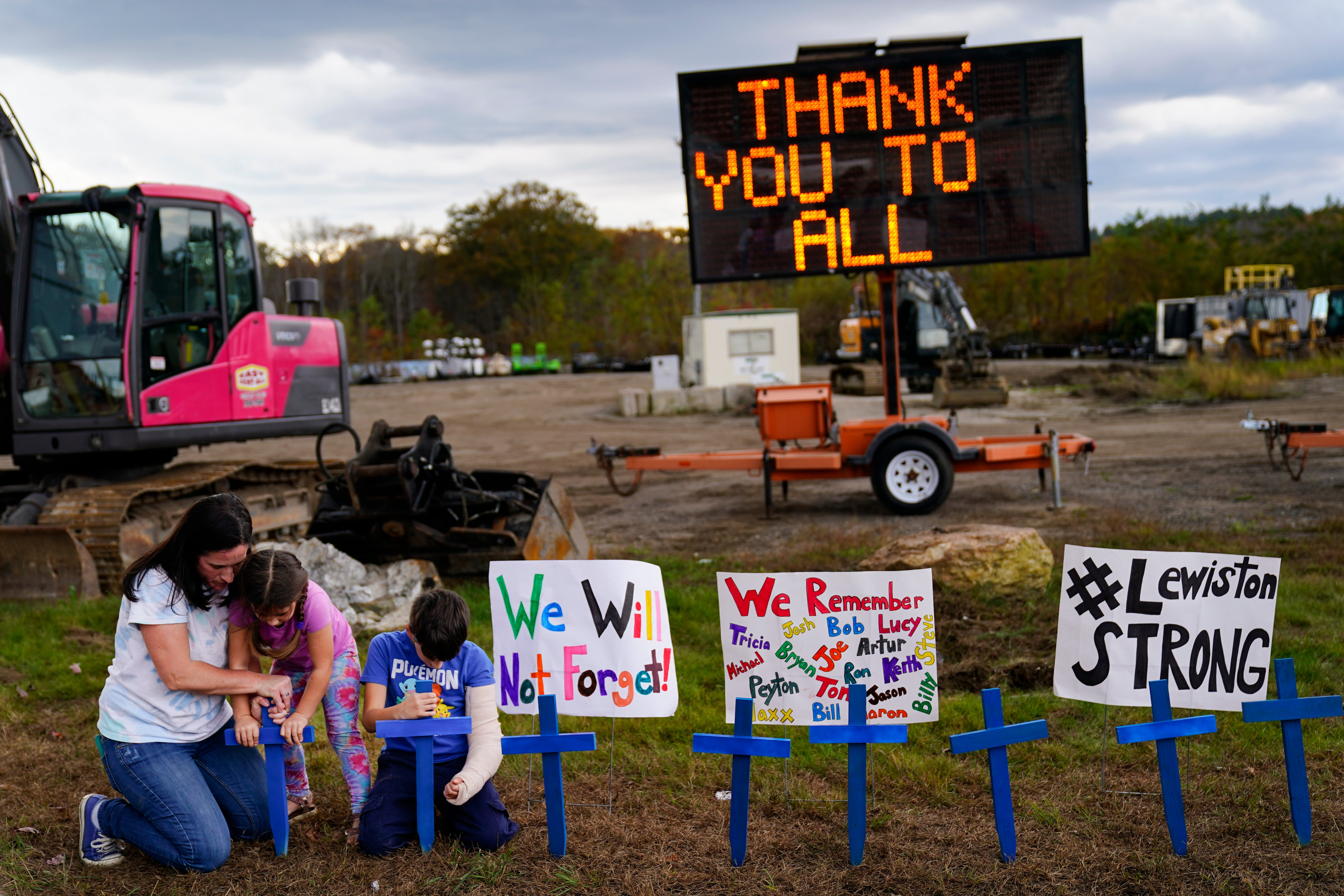
Your support helps us to tell the story
From reproductive rights to climate change to Big Tech, The Independent is on the ground when the story is developing. Whether it's investigating the financials of Elon Musk's pro-Trump PAC or producing our latest documentary, 'The A Word', which shines a light on the American women fighting for reproductive rights, we know how important it is to parse out the facts from the messaging.
At such a critical moment in US history, we need reporters on the ground. Your donation allows us to keep sending journalists to speak to both sides of the story.
The Independent is trusted by Americans across the entire political spectrum. And unlike many other quality news outlets, we choose not to lock Americans out of our reporting and analysis with paywalls. We believe quality journalism should be available to everyone, paid for by those who can afford it.
Your support makes all the difference.Thomas Giberti, the 69-year-old former manager of the bowling alley where a Maine shooter began a shooting rampage that killed 18, astonishingly left a Lewiston-area hospital on Saturday just days after the attack – carrying seven new bullet wounds and a deep grief for friends massacred.
“He’s been through a few surgeries over the last couple days,” his nephew, Will Bourgault, told The Independent. “It’s pretty much a miracle, honestly. He was shot four times in his left leg and three times in his right leg.”
Mr Giberti, who regularly spends evenings at Just-In-Time Recreation and knows the bowling alley intimately as a former employee, had stepped away from the lanes in the moments before the shooting started – but returned to find flashes of light and quickly realised an attack was underway.
He was trying to shepherd children at the bowling alley to safety but was struck by gunfire in the back doorway, his nephew said. Instinctively swinging his legs out of the way, he managed to pull himself against a corner and sat there until a paramedic found him and made a tourniquet with Mr Giberti’s own belt to stop the bleeding.
“He’s a very humble person and doesn’t like the spotlight at all,” Mr Bourgault told The Independent. “He said, ‘I’m not a hero, I just reacted,’ ... And I told him, ‘Tom, that’s what heroes do. You could have run out the back door yourself, but you didn’t. You chose to go into the bowling alley where the gunfire was coming from and get those kids.’”
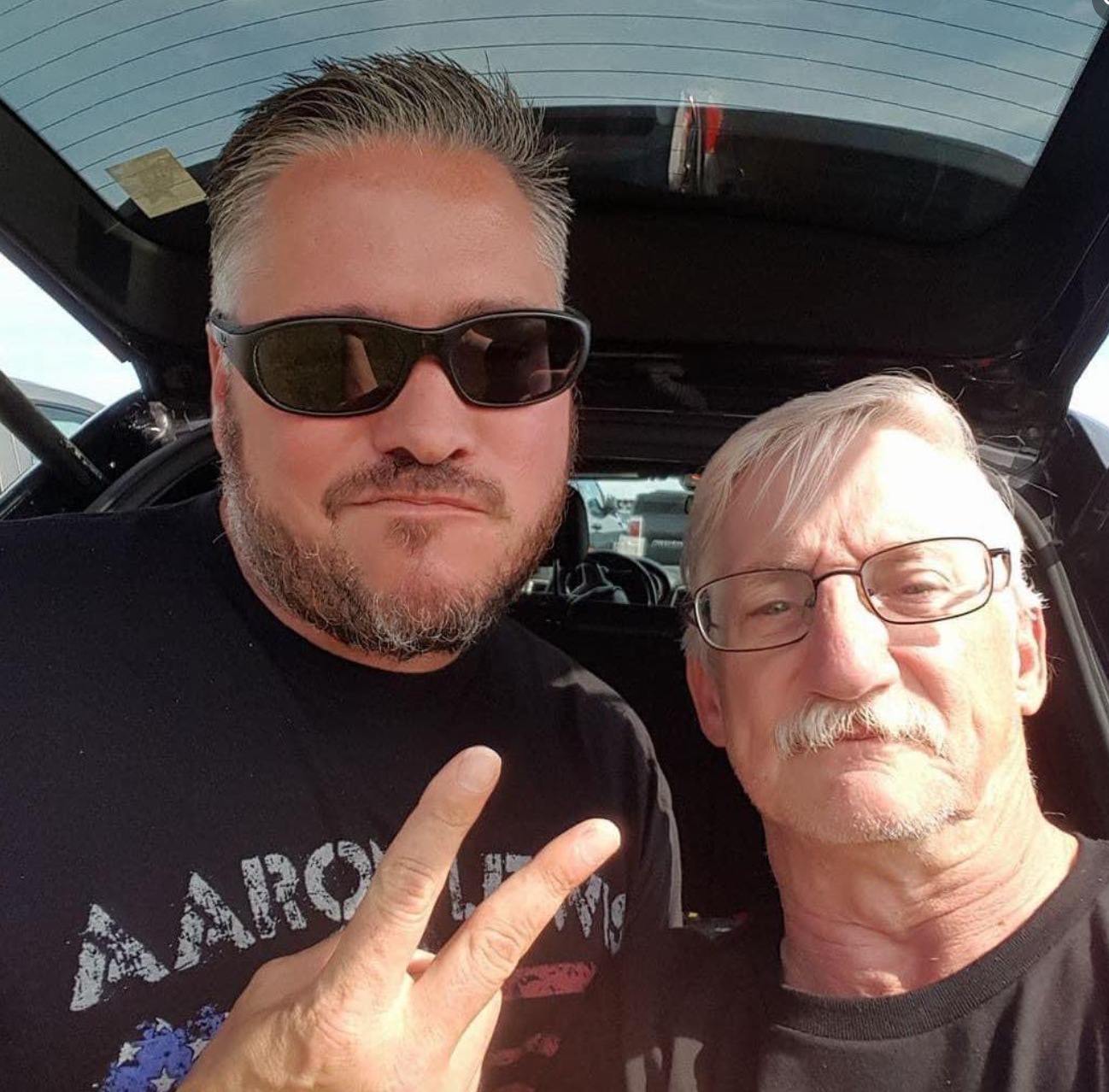
Mr Bourgault marvelled at how his brave uncle had already been walking with the help of a walker before being discharged – but, along with the wider community, faces a long and painful road ahead. As he heals, he’s mourning a close friend who died after placing himself between the bullets and his wife – who tragically also later succumbed to her injuries.
“As much as you want to celebrate his recovery, he lost a really good friend of his, and three of his former coworkers,” Mr Bourgault said. “He’s definitely not in a mood to celebrate anything but at the same time, we’re very thankful that he’s still with us.”
As the 69-year-old begins healing and processing the trauma outside of the hospital, other families continue to hold vigil for survivors still in critical condition. Relatives and friends have set up GoFundMe campaigns for Mr Giberti and others affected, while businesses and organisations throughout the Lewiston/Auburn area were scrambling on Saturday to plan individual fundraisers.
The shelter-in-place order had been lifted on Friday after 48 hours as authorities announced they’d found the body of alleged gunman Robert Card, a 40-year-old Army reservist who’d gone on the run immediately following the shootings at Just-In-Time and Schemengees Bar and Grille Restaurant. The locations are miles from each other in the town; Card opened fire first on Wednesday just before 7pm at the bowling alley before hightailing it to the bar, where he killed another eight people.
Kayleigh Morris, 33, works “right behind” the bowling alley and, like the rest of Lewiston, was struggling to come to terms on Saturday with the fact a mass shooting had been brought to the doorstep of the quiet town – in a famously peaceful state.
“This is our first mass shooting in this state,” the mother of two told The Independent. “This was our first one ever, and it is number 10 in the worst mass shootings in America.”
Up until Wednesday, the 10th-largest number of fatalities during a US mass shooting had been 17, an inglorious distinction tied by the 2018 Marjory Stoneman Douglas High School massacre and a 1966 shooting at the University of Texas.
As the weekend unfolded, the community was reeling. Lewiston may be the second-largest city in Maine, but it’s still small, with fewer than 39,000 residents. It was a mill town and a flashpoint for migration from north of the border in the mid-to-late 1800s; Father Daniel Greenleaf, pastor of the Prince of Peace Parish, describes it as “a Canadian immigrant church”. Lewiston’s tenure as Maine’s textile centre was over by the middle of the 20th century, though many of its mills and waterways still stand and are recognised on the National Register of Historic Places.
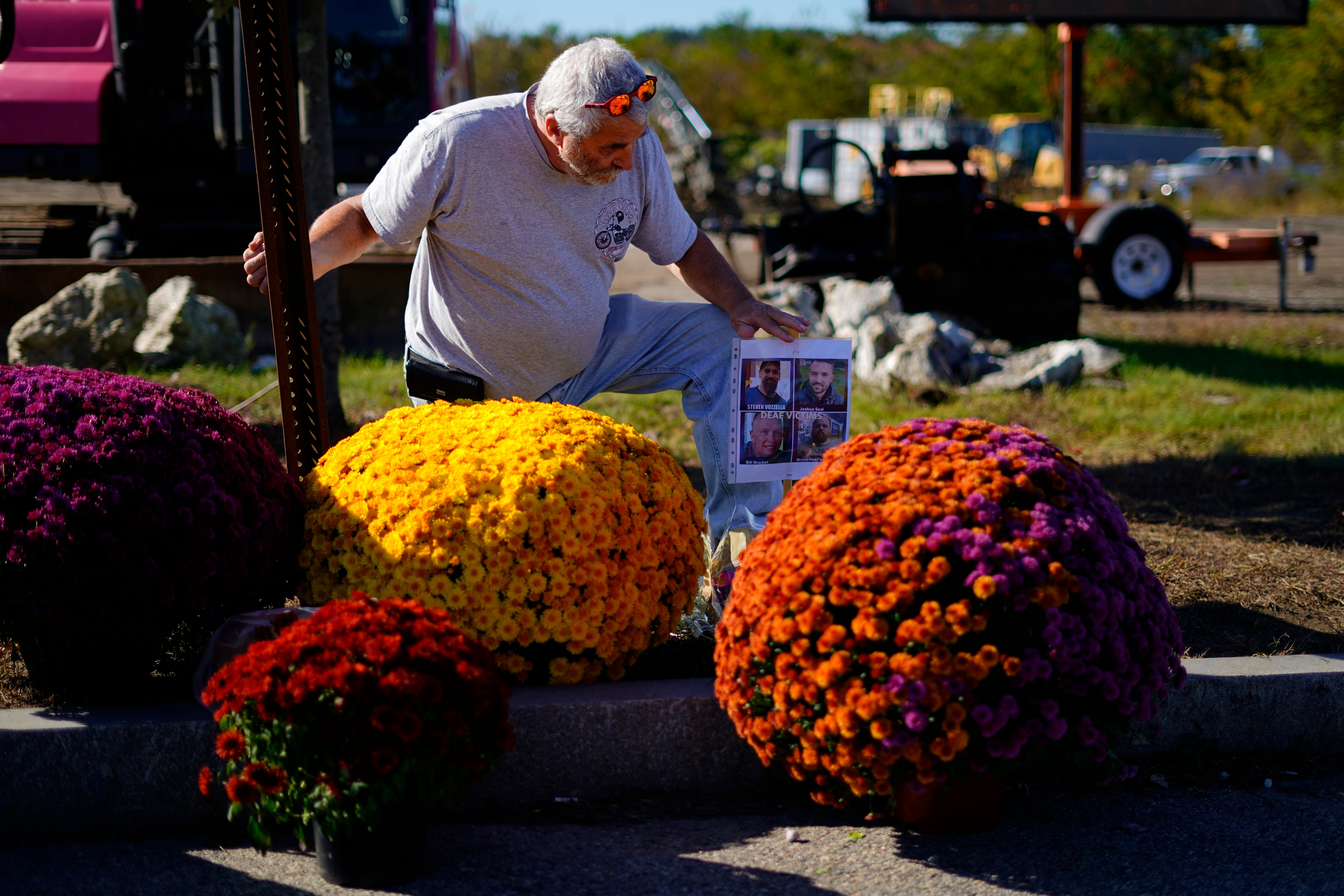
The town today is home to Bates College, the Farmers Almanac and a relatively new Somali community; the average home price hovers just $150,000 in the heavily working- to middle-class area 35 miles north of Portland.
The community is tight-knit and fiercely local. Before Wednesday night’s shooting, the biggest news had been the upcoming elections, campaign signs and banners blanketing the town.
Much of the gossip and social life for years has centred on pub sports – darts, pool and, importantly, cornhole, with residents avidly playing in leagues and following tournaments.
“When I first moved out to Maine, one thing that I was really surprised by was the fact that everybody up here is really good at pool and at darts and at cornhole – everybody’s pretty competitive, but they’re also really good,” Alex McMahan, who co-owns a chain of dispensaries and moved to the state from South Carolina, told The Independent.
“Places like Schemengees, where it’s got the pool, the darts and the cornhole, it is the quintessential place to be in a city like Lewiston … pretty much everybody frequented it.”
Soon after his arrival in Lewiston around seven years ago, Mr McMahan got to know Thomas Conrad, a young father who was working as the manager of Just-In-Time on Wednesday. As news of the shooting broke, the dispensary owner texted his longtime customer and buddy: “Are you okay, brother?”
“And he obviously didn’t text back,” Mr McMahan said, noting that he’d received an eerie follow-up “ding” on his iPhone on Saturday alerting him again to the unanswered text.
“I hear that he died trying to take out the shooter, which was just an amazing act of selfless heroism – and knowing him, and knowing how good of a guy he was, I’m not surprised at all that he didn’t hesitate to put his life on the line to try to help others,” Mr McMahan said.
He and one of his MedCo employees, Ms Morris, on Thursday night decided to “plant the seeds for some memorials, because we just wanted to help the city to heal in the right direction,” Mr McMahan told The Independent.
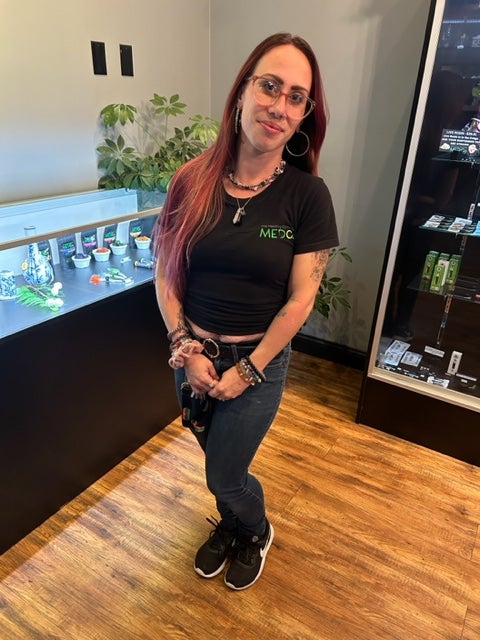
Together with her 13-year-old daughter, they began putting up signs around town; on Friday, Mr McMahan returned with “a truckload of flowers” to expand the memorials.
“All of those locations have grown; people have been bringing flowers and poems and prayers and pictures and crosses,” he said Saturday.
Near Just-In-Time Recreation, mourners were also leaving Jack-o-lanterns – because Mr Conrad had been “planning on doing a pumpkin carving at the bowling alley for his nine-year-old daughter and for some of the kids in the community,” Mr McMahan said.
Ms Morris said her own daughter had been determined to do something visible after the shooting to support the shocked community; the family felt close to the tragedy not only because Mr Conrad had been a familiar face but also because Ms Morris usually worked at the Healing Community MedCo location close to the bowling alley. News travels fast in Lewiston, and in Maine in general; less than an hour after the shooting started, calls began rolling in asking if Ms Morris was okay.
She, like so many in the town, sought to highlight that the shooter was not a native – while mourning the fact that Lewiston had become the latest American community hit with such an atrocity.
Already, Ms Morris said she was learning what it was like to be from a town that’s added #Strong to its name. While businesses were closed during the shelter-in-place order, she says, she drove to nearby Windham for a cup of coffee, running into another woman she recognised from Lewiston while there. The coffee shop employee, who’d been “pretty upbeat at first … heard us talking, and all of a sudden, just the way she was talking to us” changed – her voice and demeanour softening, becoming overly solicitous and sympathetic, according to Ms Morris.
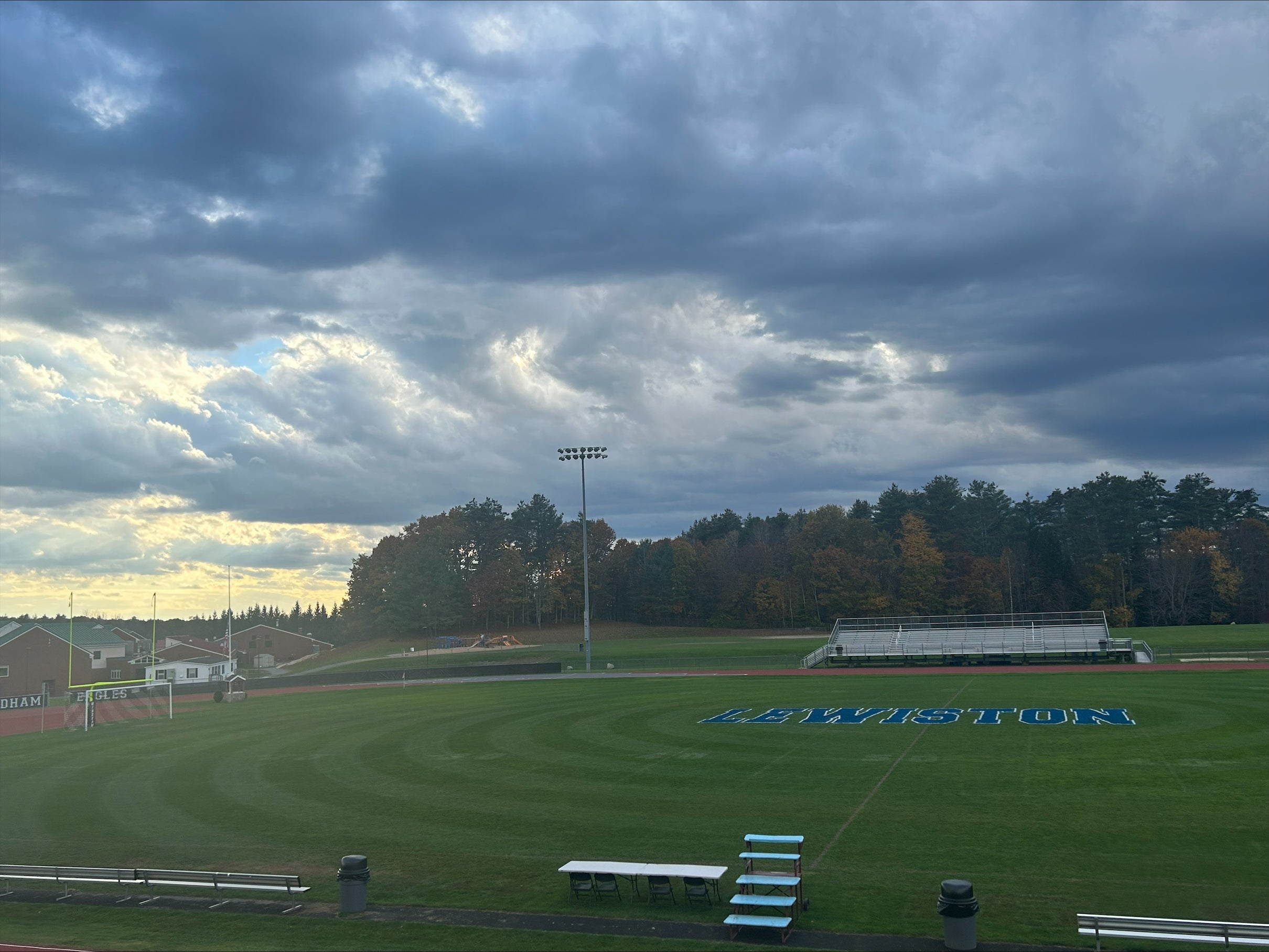
“That was an even weirder feeling, and that’s something I never thought about” previously, she told The Independent.
Communities throughout Maine were rallying to support Lewiston, too; in nearby Wyndham, a local restaurant was offering free meals for first responders, and the local high school painted “Lewiston” on its football field in blue, the colors of Lewiston High School.
In the centre of Lewiston on Saturday, 43-year-old Jeff Albert pointed out that residents were aware “GoFundMe takes a percentage … I think local fundraisers are going to take off, because 100 per cent of the proceeds are going to go to these families.”
He was sitting at Rusty Bus Brewing Company, around the corner from City Hall; earlier in the day, the establishment on Facebook invited the community to “come in, share some beers and thoughts, and support each other through these next days.”
Echoing the relief of tens of thousands of residents, the brewery wrote: “The monster that has terrorized our community has been found, and does not pose a threat to any of us any longer.”
That muted relief was nearly palpable over the weekend as Lewiston/Auburn residents ventured back out, grappling with how to grieve and how to move forward.
“Mainers are tough people,” Mr McMahan told The Independent. “And so I think that we will always carry in our memory the 18 people who passed away, and I think that people will continue to go about life and continue to be strong because that’s how Mainers are.”